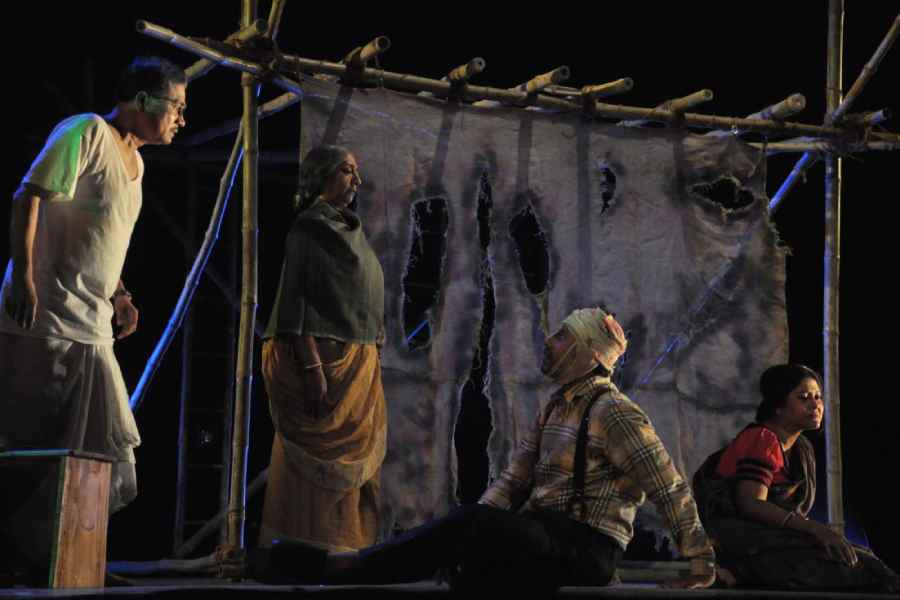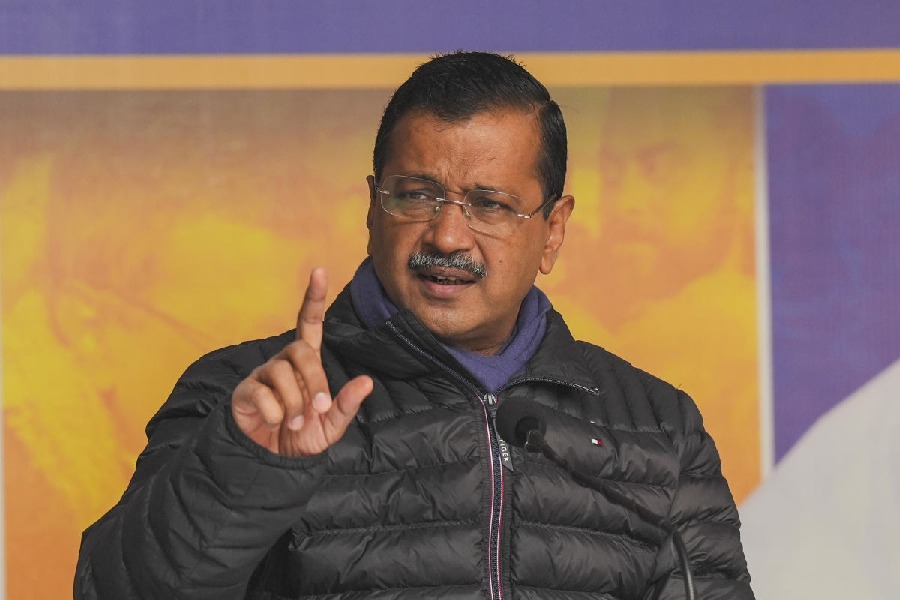Ferari Fouz, the swashbuckling play written by Utpal Dutt and produced by Little Theatre Group in 1961 that won him the Sangeet Natak Akademi award three years later, has seen a second coming. Set in a mofussil area of riverine East Bengal of the 1930s, the play marked Dutt’s first major attempt at reworking historical material and explored the underbelly of extremist movements that shook the foundation of British rule. In Towards a Revolutionary Theatre, Dutt wrote, “From the very beginning of my theatre-work, we have tried to put revolution in a historical perspective.” Ferari
Fouz substantiates this statement, underlining his commitment to the ‘proletarian myths of revolution’.
Given the current framework of group theatre in West Bengal, mounting
a production as big as Ferari Fouz is a Herculean task. Naihati Natya Samannay Samiti, a collective based in the cultural hub of North 24 Parganas, pumps in all its resources and leaves no stone unturned to make the production worthy of its name.
Debasish Ray, currently at the peak of his career as a theatre director, maintains the period elements and edits Dutt’s text judiciously, retaining its essence. Ray designs a flexible set that transforms itself at the drop of a hat. Innovative ideas, like reworking the staircase leading to the proscenium into a trapdoor inside a brothel that also doubles up as the meeting place of the revolutionaries, remind one of Dutt’s improvisations with the stage area. Ray’s signature style of balancing feverish action with introspection finds a perfect harmony in Ferari Fouz. This reviewer experienced its 12th show recently at Girish Mancha and was reassured about the future of Dutt’s plays outside the domain of People’s Little Theatre.
Buddhadeb Das displays maturity in playing the pivotal role of Ashok, the young revolutionary. The scenes featuring Ashok and his family members (subtle portrayals by Bablu Chowdhury, Suranjana Dasgupta and Kasturi Chakraborty) are mounted sensitively. A strong supporting cast, including Debashis Sarkar, Debsankar Halder, Partha Bhowmick, Partha Bandyopadhyay and a charming Debjani Sinha playing Radha, the prostitute, adds credibility to the performance.










